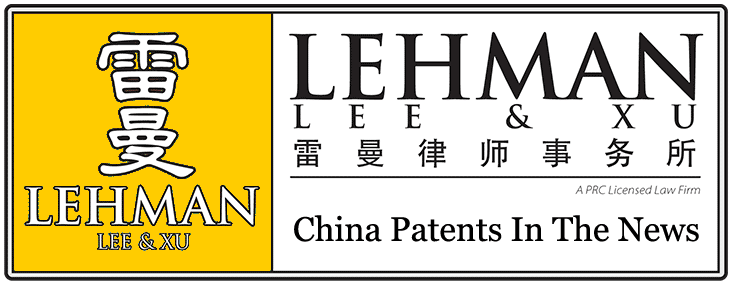In June 2013, the IP Tribunal of Shanghai High People's Court published the New Guidance Notes for Handling Disputes over Inventor/Designer's Award and Remuneration for Service Inventions, as the Chinese text published on the website of IP Protection by Shanghai Courts at www.hshfy.sh.cn.
Following the third revision of China Patent Law back in 2008, the inventor/designer's award and remuneration specifics have been developed under Rules 76-78 of the Implementing Regulations, which govern all types of legal entities and organizations. However, the rules pose challenges to the judiciary in IP trials to balance interests between the employers and employees, and to maximize the incentives for innovation under the Regulations. Jointly researching with Quality Brand Committee of China Association of Enterprises with Foreign Investment (CAEFI) in 2012, the IP Tribunal of Shanghai High People's Court worked out the Study Report on Inventor's Remuneration for Service Inventions with reference to the legislations as well as recent IP practice home and abroad. Herein below are the key points of the add-on Guidance Notes set out by Shanghai High People??s Court for the local courts to follow with immediate effect.
The inventor/designer's award and remuneration rules apply to the service inventions created inside mainland China, as prescribed in Article 16, China Patent Law and Rules 76-78, Implementing Regulations.
Under the "promissory prior to statutory" principle of the Implementing Regulations, it is presumably reasonable that the employer enters into an agreement with the inventors over the amount of award and remuneration in terms of industrial R&D, patent portfolio management, as well as exploitation and enforcement, etc.. In case that the amount as agreed is exceptionally low, which is self-evidently irrational, shall therefore be reviewed and determined by the court on the merits issues, whereas the statutory rules on award and remuneration are not directly applicable. The agreement shall not go beyond what is stipulated in Contract Law and Labor Contract Law in respect of whether being effective, void, voidable or modifiable.
The employer enjoys the right to offer the amount of award and remuneration more than the one as prescribed in the Implementing Regulations, the excess of which is nevertheless not obligatory. In this regard, it will not be upheld by the court that the inventors claim an award at over RMB3,000 for one invention patent, or over RMB1,000 for one utility model patent, or the designers over RMB1,000 for one design patent. Likewise, the remuneration for invention or utility model will not be considered if over 2% of turnover profit for exploitation, or for design if over 0.2%. Regarding patent assignments in absence of any agreements between the employer and inventors or of any company rules and regulations, it can be inferred from patent licensing practice where no less than 10% royalties shall be remunerated.
Concerning commissioned inventions, the commissioning party can enjoy the right to patent applications, if agreed. In this case, the entrusted party is not eligible to honor any amount of award or remuneration for not being in the capacity of right owner. Further, the inventor/designer shall not enjoy any amount of award or remuneration as they are not employed by the commissioning party. In absence of any agreements, the R&D personnel or entities shall enjoy the title to patent applications for any commissioned inventions, where the commissioning party may have the inventions exploited for free. In case of transfer, the commissioning party is entitled to patent assignment on a priority basis under the same conditions.
The dispatched personnel as lawfully employed shall enjoy the inventor/designer's award and remuneration for his/her service inventions completed with the employer's facilities.
The inventor/designer shall institute legal proceedings concerning service-invention award and remuneration within two years from the date on which he/she knows or should have known any compensation for damages, irrespective of the termination of labor relations.
The expenses for necessary legal actions shall not be recovered, as the claim for service-invention award and remuneration is inherently different from that for patent infringement disputes.
http://www.lexology.com/library/detail.aspx?g=f40542b5-4e19-4021-bd14-683affc264f0 |

